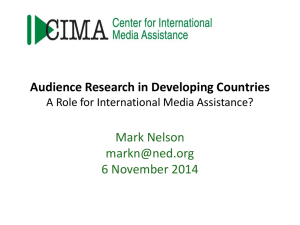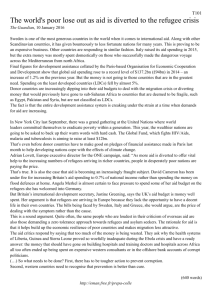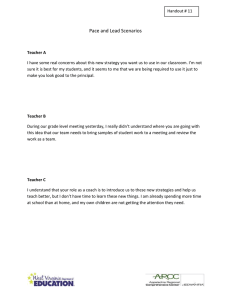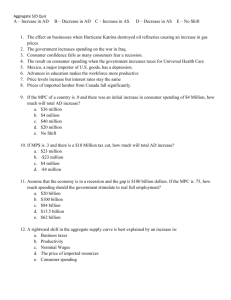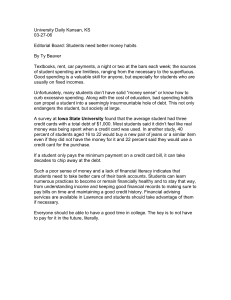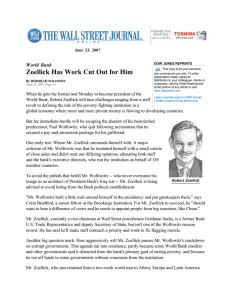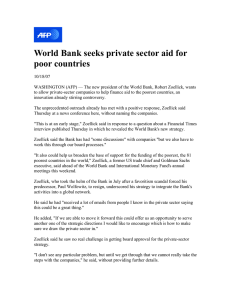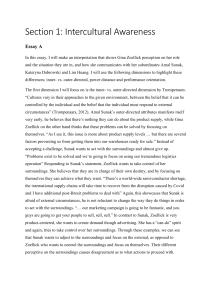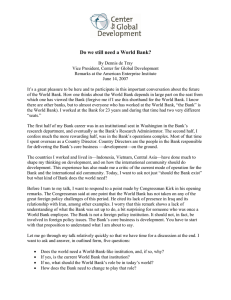U.S. Role as Biggest World Bank Donor at Risk in...
advertisement
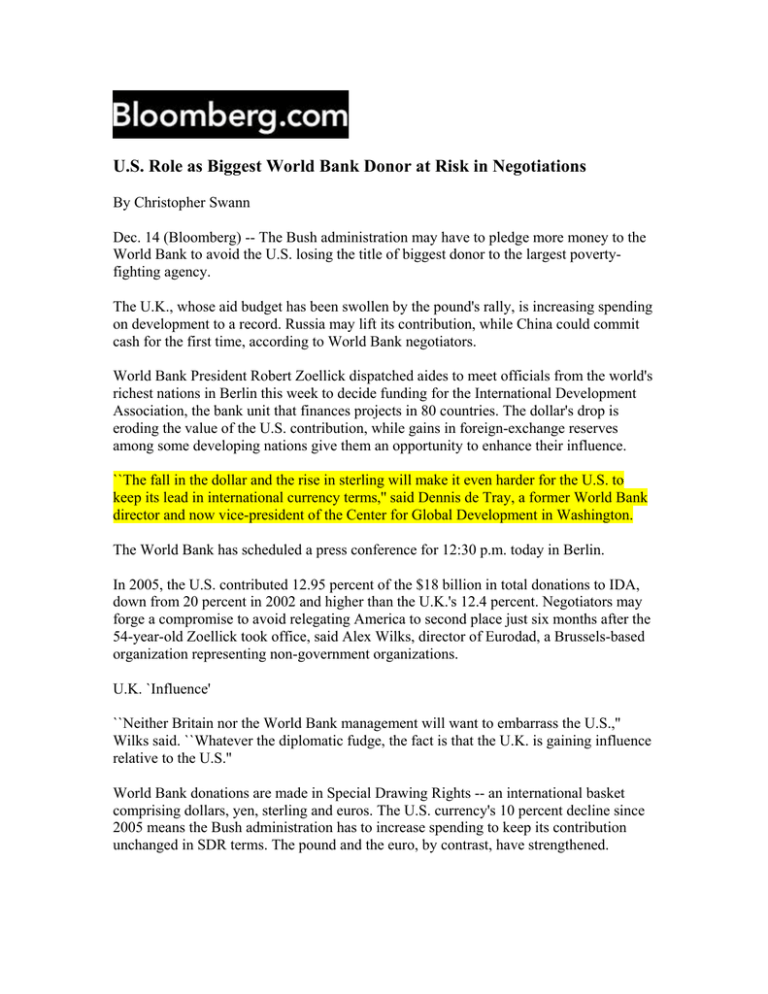
U.S. Role as Biggest World Bank Donor at Risk in Negotiations By Christopher Swann Dec. 14 (Bloomberg) -- The Bush administration may have to pledge more money to the World Bank to avoid the U.S. losing the title of biggest donor to the largest povertyfighting agency. The U.K., whose aid budget has been swollen by the pound's rally, is increasing spending on development to a record. Russia may lift its contribution, while China could commit cash for the first time, according to World Bank negotiators. World Bank President Robert Zoellick dispatched aides to meet officials from the world's richest nations in Berlin this week to decide funding for the International Development Association, the bank unit that finances projects in 80 countries. The dollar's drop is eroding the value of the U.S. contribution, while gains in foreign-exchange reserves among some developing nations give them an opportunity to enhance their influence. ``The fall in the dollar and the rise in sterling will make it even harder for the U.S. to keep its lead in international currency terms,'' said Dennis de Tray, a former World Bank director and now vice-president of the Center for Global Development in Washington. The World Bank has scheduled a press conference for 12:30 p.m. today in Berlin. In 2005, the U.S. contributed 12.95 percent of the $18 billion in total donations to IDA, down from 20 percent in 2002 and higher than the U.K.'s 12.4 percent. Negotiators may forge a compromise to avoid relegating America to second place just six months after the 54-year-old Zoellick took office, said Alex Wilks, director of Eurodad, a Brussels-based organization representing non-government organizations. U.K. `Influence' ``Neither Britain nor the World Bank management will want to embarrass the U.S.,'' Wilks said. ``Whatever the diplomatic fudge, the fact is that the U.K. is gaining influence relative to the U.S.'' World Bank donations are made in Special Drawing Rights -- an international basket comprising dollars, yen, sterling and euros. The U.S. currency's 10 percent decline since 2005 means the Bush administration has to increase spending to keep its contribution unchanged in SDR terms. The pound and the euro, by contrast, have strengthened. Britain is well placed to take the leading role at the World Bank, analysts said. In October, Chancellor of the Exchequer Alistair Darling said the country's overseas aid budget will climb 17 percent. Spending by the U.K.'s Department for International Development alone will go up by 11 percent to 7.9 billion pounds in three years. Total British spending on aid will reach 9.1 billion pounds by the end of 2011. Displacing the U.S. ``Britain has the money to take the lead'' de Tray said. ``The question is whether they will want to take the risk of displacing the U.S., which might lead U.S. policy makers to step aside and disengage from the World Bank.'' Japan, the third-largest donor to the World Bank in 2005, faces a bigger challenge than the U.S. The yen has fallen by 13 percent against the SDR since 2005. The biggest advancers are Canada, whose currency is up 16 percent and Australia, whose dollar has advanced 11 percent. In 2005, 60 percent of IDA contributions came from the Group of Seven major industrial nations, according to the World Bank. This time, developing countries are likely to assume a greater role. The World Bank expects at least five new donors to make contributions, including Lithuania, Latvia, Estonia, Egypt and Cyprus. World Bank negotiators are also asking oil-exporting nations to provide more money, reflecting crude oil's surge. In 2005, Saudi Arabia represented 0.22 percent of the total, lower than its 2.85 percent shareholding in the World Bank. ``Zoellick has been trying to make a pitch where the money is,'' said Bruce Jenkins, policy director at the Bank Information Center, an organization in Washington that monitors the World Bank. ``It would be very strange if the Saudis were not very much in his sights.'' To contact the reporter on this story: Christopher Swann in Washington at cswann1@bloomberg.net
